The 25 Best PC Games of 2024
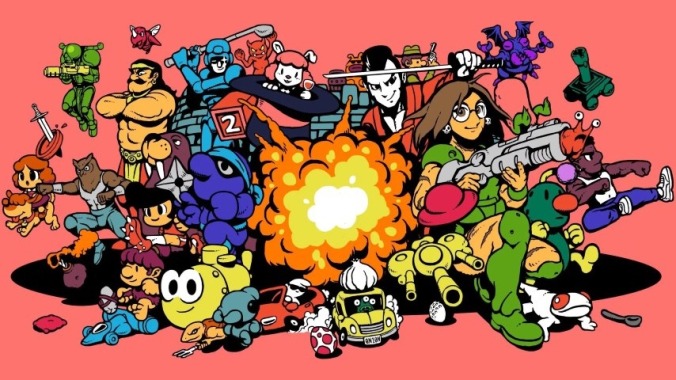
2024 has been a great year for PC games, specifically for me, Garrett Martin, Paste’s games editor. I have a Steam Deck now which means my decades-long aversion to playing games on a computer (I work there, now you want me to play there too?) won’t prevent me from playing games made for a computer. I definitely would’ve played, say, UFO 50 enough to get a feel for it back when I could only play it on the same box I already spend eight hours a day in front of, but I definitely would not have cherried as many of its games as I have. (“Cherried” is an actual term from UFO 50, don’t blame me for it.) But now I can kick back in bed or on a plane or in a hotel room and play some of the very best games of the year without sitting in the desk chair that has become basically perma-molded to my body after over a decade of working from home full time. If you can swing the cost of a Steam Deck, do it—especially if you hate playing games on a computer.
When I say “some of the very best games of the year” are playable on computers I mean pretty much all of them. Only a handful of games on our best of 2024 list aren’t playable on PC, and that’s the only way to play many of them. UFO 50, Mouthwashing, Arctic Eggs, Sorry We’re Closed… it’s PC or bust. And if you haven’t played those games, you absolutely need to, both to understand the scope of the art form in 2024, and also to just have a good time playing smart and fun games.
The list below was compiled based on ballots cast by a small crew of Paste’s regular games contributors. Only games released between Jan. 1 and Nov. 30, 2024, were eligible, so tough luck Indiana Jones (and Caves of Qud). Also ineligible are early access games, DLC, and rereleases. We’re talking about new, discrete games that came out this year, and not bonus material for games that came out three years ago or works in progress that might not “officially” release for another decade. Whether you’re playing on a laptop, a Steam Deck, or an honest-to-god computer like you’re some kind of professional business person, the best PC games of 2024 won’t steer you wrong. Check ‘em out.
25. Shogun Showdown
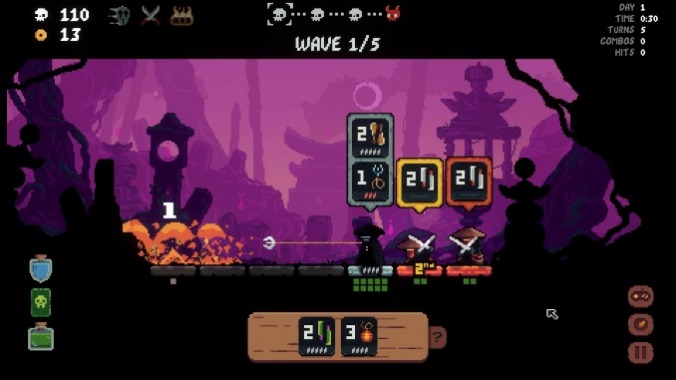
Listen, I get the complaints, especially for folks with no interest in cards; roguelike deckbuilders have rapidly become a hot genre, sometimes to the point where it feels like every other game made by a smaller team checks these same boxes. But while there are a lot of them, a significant chunk of these find their own fascinating niches, which not only helps distinguish them among genre-diehards but also helps newcomers wrap their heads around a style of experience they may not get the appeal of. By removing the traditional concept of a deck while retaining complexity and tough choices, Shogun Showdown threatens to suck in a whole new cohort until they’re haggling at their local boardgame shop for the Planeswalker that will tie their deck together (ok, maybe they won’t go that far, but still). There may be a lot of games about cards these days, but as long as we continue to get ones that shuffle things up in bold and compelling ways, I’m not worried about getting sick of the genre any time soon.—Elijah Gonzalez
24. Crow Country
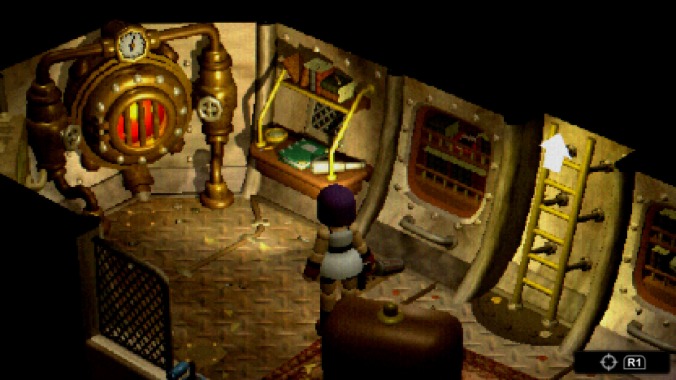
Set in 1990 in an abandoned theme park in Paste‘s home town of Atlanta, Ga., Crow Country wears its OG PlayStation influences on the sleeves of its Charlotte Hornets Starter jacket. On the surface it ticks off all the classic survival horror boxes: limited ammo and health, an awkward aiming system, incentivizing head shots (or even just running) over any other attacks, and a claustrophobic atmosphere full of dread and jump scares. I generally hate survival horror, so I’m glad to report there’s so much more to Crow Country beyond those genre trappings. It’s really more about puzzles than action, almost like a Sierra point-and-click with a three-quarters view and the occasional need to shoot something. You explore the park’s various themed areas, looking for clues to a bewitching central mystery about the park’s creation and abrupt closure. The writing is compelling throughout, both creepy and funny, and its small cast of characters are concisely sketched with lifelike depth. It’s an engrossing enigma that’s clever from start to finish, and with buckets of retro warmth and charm. Plus it mentions the Atlanta Falcons. Obviously I’m going to dig it.—Garrett Martin
23. Little Kitty, Big City
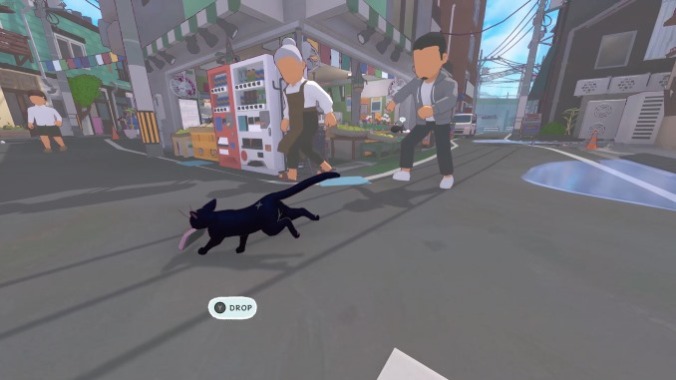
“Hang out games”—games without urgency, that explicitly try not to stress you out too much—cozy games, as many call them—can be tough to get right. They can feel too much like busy work, with a checklist of stuff it wants you to do every day (hey, Animal Crossing!) It’s also not easy to build a world players want to hang out in. You have to be really good at writing stories, creating characters, and putting them in an environment that, if not warm and inviting, is at least compelling enough to keep players checking in. That’s the greatest strength of Little Kitty, Big City. I love this little kitten. I love how it slinks, stalks, crawls, and runs through the city. I’ve tripped probably 100 very serious business people on their way to work and it’s never gotten old. I love all these characters—the brave ducklings who roamed the city for show and tell, the sleepy bodega cat who proclaims himself the mayor, the shiba inus who go out of their mind barking at the kitty unless you give them a bone, which they’ll manically gnaw and slobber on for the rest of the game. Charm coats this game like hair and dander on a cat lover’s couch. With Little Kitty, Big City, Double Dagger has given us an ideal “hang out” game that helps so much to alleviate stress and sadness that it might also be the first “hang in there” game.—Garrett Martin
22. Ys X: Nordics
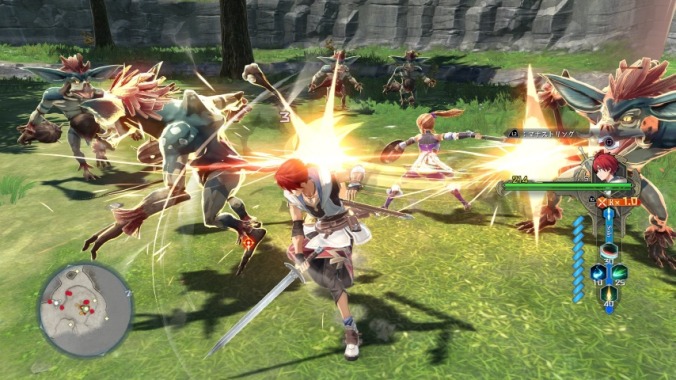
Putting Adol Christin on a boat for most of the runtime of a game seemed like a bad idea, considering his lengthy history of accidents at sea, but maybe Ys X being set before most of those incidents occurred saved him from that fate. Adol proved seaworthy, at least here, and Ys X managed to not only change up the setting by having so much of it occur on the water, but the fighting, as well. Ys X’s combat might seem a little slower at first, since it involves more blocking and evading than usual, but don’t confuse this for a Souls-like: once you start learning some skills, you’ll be using those instead of standard attacks for the most part, and basically never stop moving or attacking outside of the occasional block or evade.
This change gives Ys X an energy that Ys IX could never quite capture in its battles, and the tag-team setup that replaced the party format allows you to focus on building these massive, damage-multiplying skill chains that keeps battles moving no matter how many of them you fight. And, unlike with Ys IX, the pacing is tremendous: you can complete the whole game in a couple dozen hours if you want, but if you’d prefer to go 40-plus or beyond, there’s enough Ys and enjoyment for that, as well. It’s one of the greatest Ys games going, which is saying something.—Marc Normandin
21. Helldivers 2
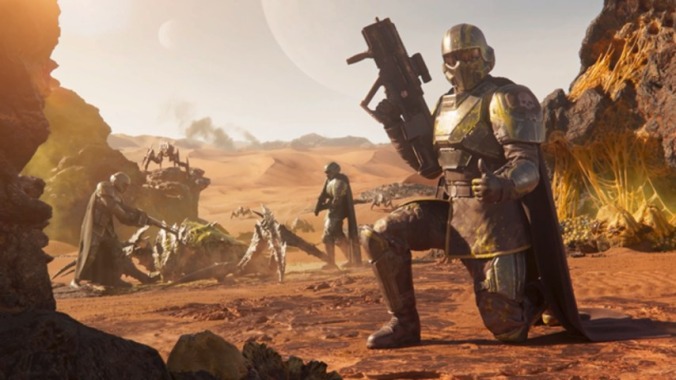
Helldivers 2 has had a bit of an up-and-down journey this year: it was an unexpected breakout hit, then drew ire for its temporary PSN linking policy and balancing decisions, until finally mostly ending up back in players’ good graces after a few extensive patches. The result is that this exercise in interstellar jingoism is more engaging than ever, with a huge arsenal of stratagems and ordinance that will almost inevitably accidentally turn your allies into mincemeat. This increased range of viable options results in much more varied “liberating,” with tons of tools that can be the right one for the current job. Although this increasingly empowering game balance squares awkwardly with all its glib anti-fascist satire, Helldivers 2 remains a brutal co-op shooter that demands teamwork if you want to avoid completely biting it. Well, that will probably happen even if you’re all well-coordinated veterans (again, that’s sort of the point considering the Starship Troopers inspiration), but that steep challenge makes for an oddly satisfying experience that will keep you and your friends marching toward certain doom.—Elijah Gonzalez
20. Clickolding
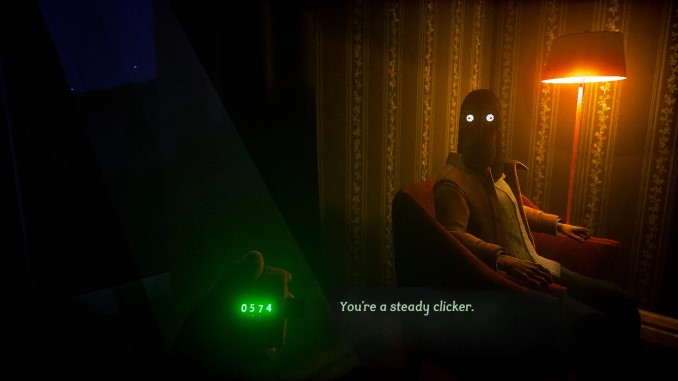
Clickolding only takes about 40 minutes to finish, and consists mostly of pressing the spacebar. Despite that short time and limited action, though, it offers a lot to chew on, interrogating the power dynamics of videogames and the relationship between creator and player. Yes, it’s a clicker—perhaps the most mindless, repetitive, and cynical type of game—but one with a point. It flips the traditional power fantasies of games on their head while exploiting the pointlessness of the clicker. You’re not clicking for your own pleasure or the benefit of your character; you’re fulfilling somebody else’s fantasy—namely the masked pervert paying you to click a tally counter exactly 10000 times. It’s the guy’s dream, and there’s no doubt it’s sexual; he has that mix of anticipation and impatience that goes hand-in-hand with living out a fetish in real life, and gives directions to speed up or slow down, to change positions, to look at him or look away, as you click on. He talks about his double life, his secretive nighttime assignations, his wife and children at home oblivious to his kink, from behind an almost featureless brown mask, as you aimlessly click and walk around a small, cramped, dingy motel room. Most videogames flatter the player. We’re the chosen one, a super soldier, a pro athlete, a sociopathic criminal who never gets punished; we rescue the princess or win the war or beat up everybody else. Clickolding absolutely does not flatter anybody. It comments on games’ traditional relationship with the player by making it feel dirty and sordid. We’re helping somebody else live their fantasy—or, more accurately, their fetish—while they wear their home-made, Joe Camel-looking mask, with a gun occasionally pointed our way.—Garrett Martin
19. Tales of Kenzera: ZAU
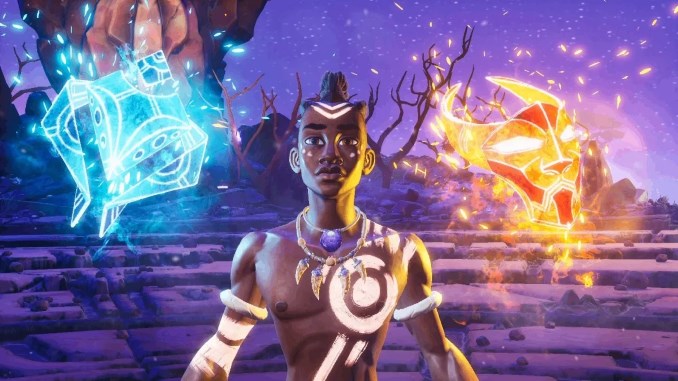
The beauty of Tales of Kenzera: ZAU is that grief is not linear. It’s not something you heal from and it doesn’t ever look the same across two people. It’s a deeply unique experience, but at the same time, it’s also universal. The complexity of grief is what makes it so. Zau feels anger, guilt, and sadness. He feels all of it and he mediates those emotions in the Great Spirits he helps cross over. He helps a parent loosen their grip on their child, he provides a salve to the anger between father and son, and he learns to let go. Each new character is a different expression of why you can get stuck in your loss, how it can debilitate you and keep you in an endless loop, ultimately impacting those around you. But even when the darkness rushes in at the end of boss battles as you try to escape a zone, the vibrancy of those emotions is never lost. When I pitched this article, I didn’t know if anyone would understand what I meant. The grief that Surgent Studios has captured is vibrant and saturated. It’s not a dull pang or a numbness that creeps. It’s more potent and the beautiful world it lives in makes it all the more impactful.—Kate Sánchez
18. Sorry, We’re Closed
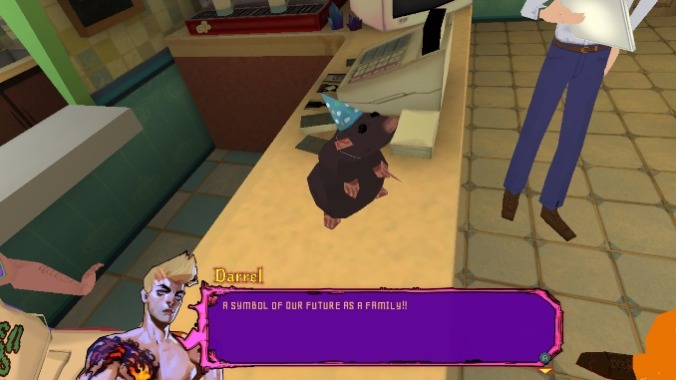
Given that survival horror game Sorry, We’re Closed is centered around romance, you’d be forgiven for assuming it ends with your character hand-in-hand with a love interest against a passionate sunset. At least in my ending (one of four), that wasn’t the case. While that may sound anti-climactic, this journey is less about finding a new partner and more about reaching a headspace where this even feels like a possibility. Just like how powerful arch-demon the Duchess has to come to terms with being cast from heaven, the game’s main character Michelle must make peace with what happened and finally move on. It’s a central struggle brought to life through thoughtfully conveyed relationships and fixed camera angle gunslinging, making for a narrative that stands out in more ways than one (the stylish neon aesthetic and striking character portraits certainly help in that regard). Dating may be hell, but watching Michelle finally become ready to jump back into that inferno was worth the effort.—Elijah Gonzalez
17. Dungeons of Blood and Dream
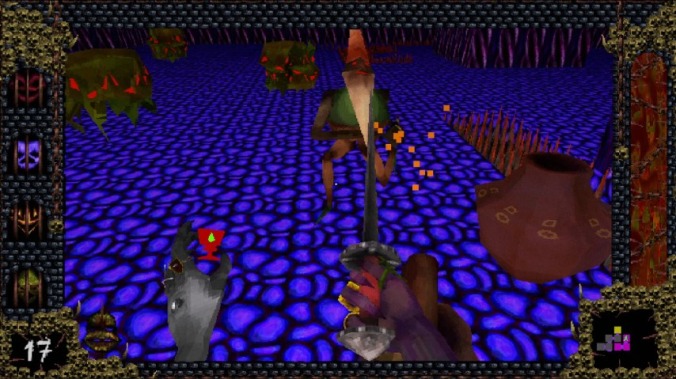
What if magic had to mean it? In Dungeons of Blood and Dream, it’s physically painful to cast a spell. I don’t just mean in the numerical cost of hit points, I mean as each sigil gets locked in for a spell, the low-poly, intensely textured POV of my Blood Wizard convulses with the violent act of spellcraft. On your quest to overturn jealous and arcane gods, you’ll drink piss and mangle your fingers for power. It’s brutal and outlandish. Clever and inventive. It makes magic meaningful in all the ways that are interesting. It’s ugly and beautiful and chaotic, but it’s also one of the most intuitive and sensible set of dungeoneering systems I’ve ever had to discover myself (you will be given very little). If there was an award for Death Loop of the Year, Lori Vornoy would win it handily for this tripped-out vision of roguelike dungeon crawling at its pinnacle. Also the soundtrack slaps.—Dia Lacina
16. Shiren the Wanderer: The Mystery Dungeon of Serpentcoil Island
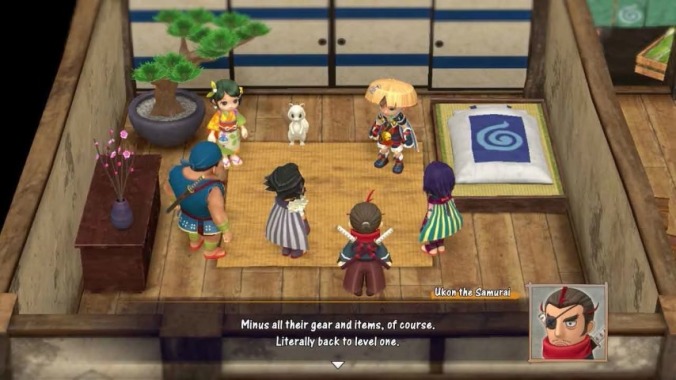
The Mystery Dungeon of Serpentcoil Island is the first completely new Shiren title in 13 years, and it’s an incredible one. It’s the most refined and approachable Shiren to date. Dedicated series veterans might be able to get through the initial 31-floor dungeon with speed and relative ease, but for most players it will take time and experience to learn the ins and outs of the game, its items, its rules, and to build the muscle memory needed to see your way through the scenarios you’ll come across. You can send items back to the initial warehouse by way of a special pot or a merchant who makes that run—both instances being random—either putting an item you don’t need on this run in or attempting to salvage something vital from a doomed run before it ends. The game’s entirety is not revealed to you from the outset: you unlock new special items or features as you go by completing some optional story bits, which will be marked in the areas they’re occurring in with an exclamation point. For instance, if you want a magical staff that turns monsters into peach buns that you can then eat to turn into that monster yourself for the duration of a floor, you need to complete the quest with the Heavenly Maiden. Which will in turn also help you to unlock Asuka the swordswoman as a traveling companion in the dungeons—she really loves peach buns, and won’t be able to rest until she’s got access to a steady stream of them. There’s something for everyone in Serpentcoil Island. The main dungeon is just plain fun for series veterans even if it’s easier than some past Shirens, full of plenty of personality and character and its own little quirks and oddities to familiarize yourself with. And it still offers plenty of challenge for newcomers while also being welcoming and open to the idea of this being someone’s first true roguelike experience.—Marc Normandin
15. Dragon’s Dogma 2
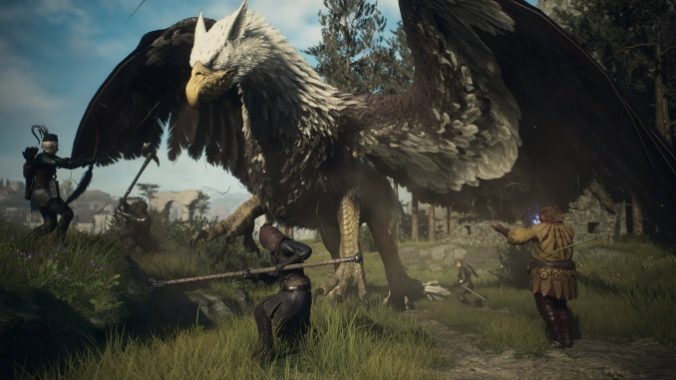
Although its story centers on a monarch trying to reclaim their crown and all the power that comes with it, Dragon’s Dogma 2’s greatest delights come from accepting you can’t control everything. You can’t influence inclement weather or the sun disappearing over the horizon as unsettling monstrosities burst from subterranean layers. You can’t blink across the world without paying for it, and instead, must take long journeys where the only cure for dwindling strength is rest. Sometimes, you can’t even get up a particular cliffside, its steep terrain forcing a different path. And most of all, you can’t always control who lives and dies (although there is a hilariously arcane process to resurrect the dead, for a price, of course). It’s not challenging in quite the same way as FromSoftware’s output, like Dark Souls and Sekiro, although I can see why those comparisons are made. Here, the toughness is less about learning to dodge-roll at the right time and more related to preparation and countering weaknesses. Dragon’s Dogma 2 also isn’t some entirely avant-garde, player-hating thing that rejects “fun” outright. It feels really good when you shield bash a guy, weaponizing the same inertia that’s sent you slipping down slopes to make a foe do the same. After hitting an off-balance enemy with a follow-up attack (aptly named “Empale”), the immaculate thud of the ensuing audio cue is music to my ears. It’s damn satisfying whenever things line up perfectly, like cutting a bridge out from under a charging Cyclops or sending a boulder ripping through an army of Saurians. But what makes these moments truly pop is that you don’t have fine control over when they arrive.—Elijah Gonzalez
14. Arco
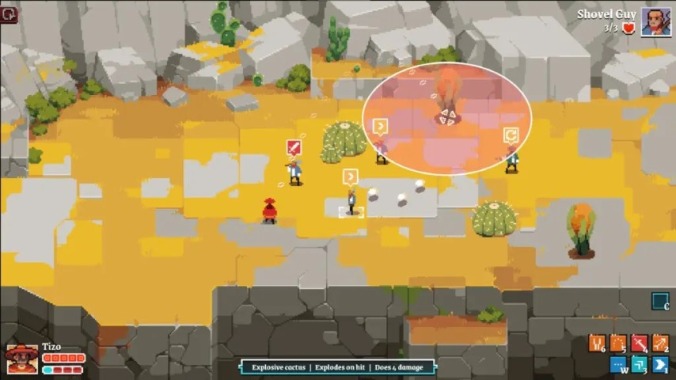
Turn-based strategy game Arco is a smart, sharply written, emotionally powerful game about a Mesoamerican civilization slowly being destroyed by colonialism, a pixelated revisionist Western in which the “newcomers” and the corporation they work for gleefully wipe out whole societies to maximize profits. The dialogue options are sparse but incisive and define characters quickly but clearly, and the vignette-style approach to the story gives a deeper and more expansive view of this culture and the war it’s destined to lose. And its battles are thrillingly unique for the genre; although you input orders for your characters one at a time, their actions are then carried out in real time, so you’ll have to predict your enemies’ tactics in advance. It’s more dynamic and challenging than the traditional Civilization or Final Fantasy Tactics biz, and its complexity and fluidity is always energizing.—Garrett Martin
13. Mouthwashing
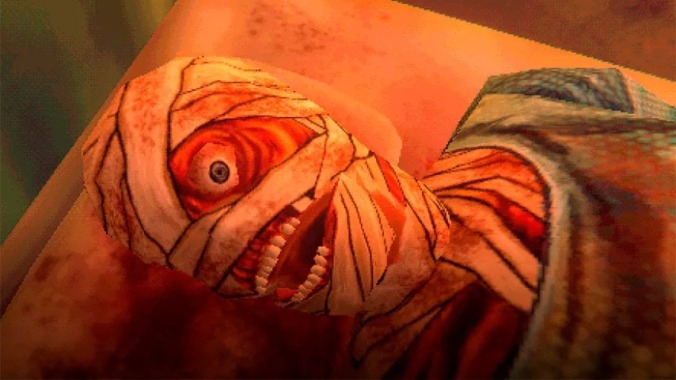
Mouthwashing is a bleak first-person psychological horror game developed by Wrong Organ, who genre-heads may know from their surreal freeware title How Fish is Made. While their latest starts out in a somewhat more grounded place (in that you don’t play as a sardine engaging in faux-philosophical discussions), it gradually builds towards similarly hallucinatory turns that make this a brain-searing lo-fi horror experience. After your captain crashes the Tulpar, a cargo spaceship, in a botched suicide attempt, the rest of the crew grapples with being stranded in deep space. Spoilers, they don’t handle it particularly well. If it wasn’t clear from this setup, this one is downright oppressive; your vessel is a dreary, increasingly dilapidated tomb portrayed via low-poly visuals which, like many games in this style, invite us to imagine the finer details for ourselves. These dimly lit corridors draw us in, less building towards jump scares or frightening encounters with monsters, and more inching us further into these characters’ headspaces as they approach heavily foreshadowed carnage. As you explore this ship, solving simple puzzles, the narrative uncomfortably peels back the layers of its crew like a Charlie Kaufman film, prodding at fears of purposelessness and employment anxieties as it builds towards its nightmarish climax that unveils the unforgivable act at the heart of this story. Through its portrayal of desperation, avoidance of responsibility, and crushing guilt, Mouthwashing is as cold as the vacuum of space. —Elijah Gonzalez
12. Prince of Persia: The Lost Crown
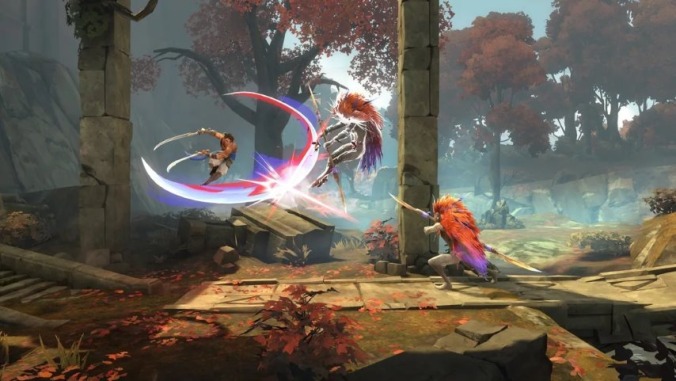
From the first rotoscoped jogs and leaps of Jordan Mechner’s brother, the core of Prince of Persia has been one of the exaltation of movement. We’ve come a long way since young David’s parking lot antics. Returning to its two-dimensional origins, The Lost Crown carries forward the dedication to cruel traps, brisk combat, and fluid motion into a stunningly-realized, interconnected world of elaborate puzzles and shortcuts, and it does it all with a rush of speed the franchise has rarely known. With how truly outstanding this game is, I’d be remiss in not mentioning how astonishingly idiotic the powers-that-be at Ubisoft were for dissolving and reassigning this team to work on old, crusty IP that posts big numbers for shareholders instead of giving them every opportunity to succeed a second time.—Dia Lacina
11. Tekken 8
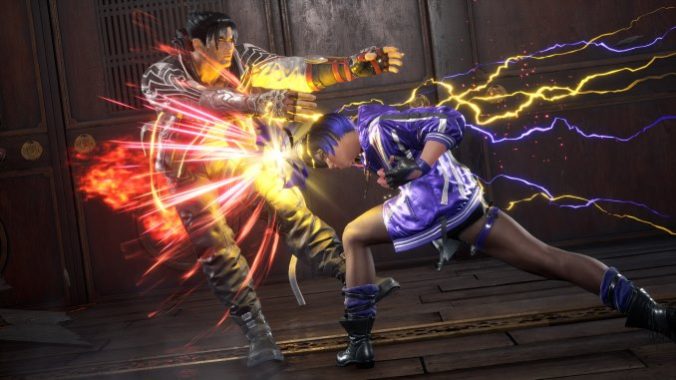
Tekken 8 may not be a sea-change sequel, but it hones what came before, reducing pain points for newcomers without reducing the complexity that makes this series special. Although the dust needs to settle to determine if its Heat system’s boons outweigh its shortcomings, the massive character movesets, rewarding roster, and explosive combos ensure its battles are exciting and tactically deep. Improved teaching tools, like its Arcade Quest mode and training room adjustments, make it easier to experience these highs. Additionally, its revamped look and hard-hitting aesthetics elevate not only its matches but also its story, a high-octane anime-inspired romp that ties together three decades of history into a resounding haymaker. If you’ve ever wanted to learn how to beat a buddy mashing cheap moves in your dorm, been curious about what’s going on under the hood as Arslan Ash and Knee duked it out in impossibly hype EVO sets, or wondered why these buff dudes keep throwing each other off cliffs, there’s never been a better time to dive into the strange and wonderful world of Tekken and find out for yourself.—Elijah Gonzalez
10. Llamasoft: The Jeff Minter Story
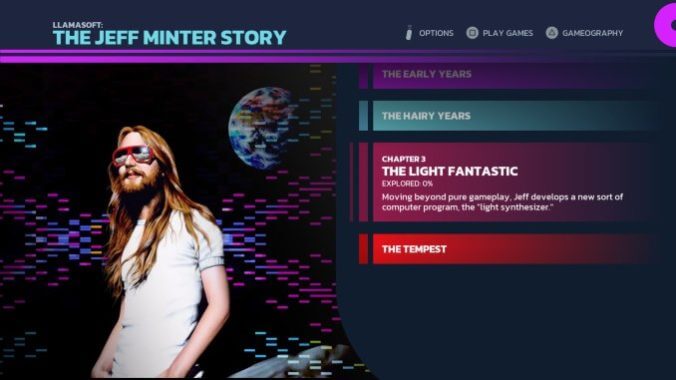
Just as earlier Gold Series entry The Making of Karateka and its precursor Atari 50 gave us an in-depth look at the background and creation of the games they focused on, Llamasoft is full of videos and archival footage about game designer Jeff Minter’s decades-long history and how his games were created, marketed, and received by the press and the public. Minter himself is beguiling, a shamanistic figure who indulges his love of computer games, psych and prog rock, and hoofed mammals in semi-seclusion in Wales, and who has been an outspoken proponent of independent game design for most of his career. The latest entry in Digital Eclipse’s series of playable documentaries collects dozens of Minter’s early games, from his earliest ZX81 rough drafts up to his 1994 masterpiece Tempest 2000, and the hallmarks of a true artist are unmistakable. Throughout his career Minter has continually iterated on similar themes, mechanics, and images, creating a unified body of games whose dreamlike logic and visuals are at odds with their strict difficulty and well-defined mechanics. Minter’s work exists in the contrast between form and function; he’s a visual iconoclast resolutely exploring the most traditional notions of “gameplay” through surreal arcade games that always bear his personal signature. His games look like abstract art and play like something you could’ve found in a bowling alley arcade in 1985, and that’s about the most bulletproof approach to game design I can think of. For over 40 years Minter has made some of the greatest, most inventive games ever, and this brilliant collection is one of the best games of 2024.—Garrett Martin
9. Animal Well
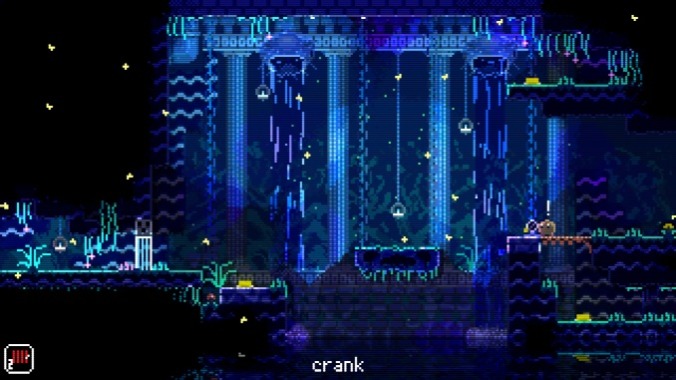
You’ve probably seen many of Animal Well’s components in isolation before. Its structure is at least partially inspired by games like Metroid, its style of puzzles bear a lot of resemblance to Fez, and its retro aesthetics call to mind a whole host of older games and contemporary works. But the way these parts come together is nothing short of uniquely enrapturing. Its smaller puzzles are rewarding, and its larger ones are so satisfying that things can quickly spiral into outright obsession, something made more captivating by this well-realized setting that is charming and disquieting in equal measure. At its core, Animal Well profoundly understands how to encourage and pay off curiosity, which is probably why, even after digging into and solving many of its mysteries, I still need to know just how much deeper this rabbit hole goes.—Elijah Gonzalez
8. Lorelei and the Laser Eyes
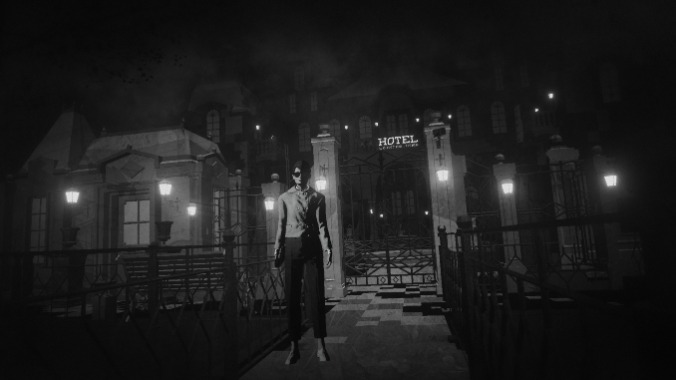
Lorelei and the Laser Eyes is a game with vision. It wraps intriguing puzzles in a digital gothic framework. It makes the most of its chosen medium as it forces us to navigate the tenuous details of this backdrop. Just about every layer of the experience is creatively risky, from its fragmented narrative to its uncompromising barrage of challenges, but these gambles largely pay off to deliver something with purpose and direction. Crafting this kind of maze isn’t easy; it takes a combination of subtle guidance and faith in your audience. But despite these challenges, Simogo never loses sight of how to stoke curiosity about what’s lurking around the next corner, whether it’s a treasure you’ve been seeking or, conversely, something horrible lurking in the dark.—Elijah Gonzalez
7. Arctic Eggs
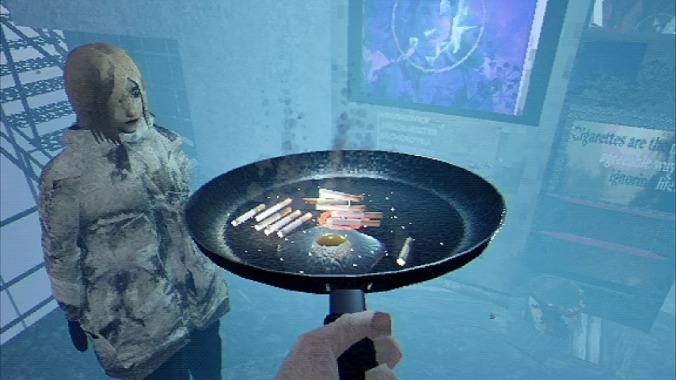
I love eggs and I love cigarettes. No, you don’t understand. I really love eggs and cigarettes. I also love feeding people. I want to feed you at the end of the world. At the end of the world, I want to feed you all eggs, and maybe cigarettes, maybe ammunition, or eggs and canned fish and bacon. Do you have a favorite incongruous combination of absurd physics objects you want me to perfectly time in my sizzling skillet? Let’s fucking go. We’re on Big Shell, we’re on a khrushchyovka, we’re on the combination Big Shell khrushchyovka far beyond the timberline. Let me cook weird egg-centric meals for you while you tell me your weirdest thoughts.—Dia Lacina
6. Ultros
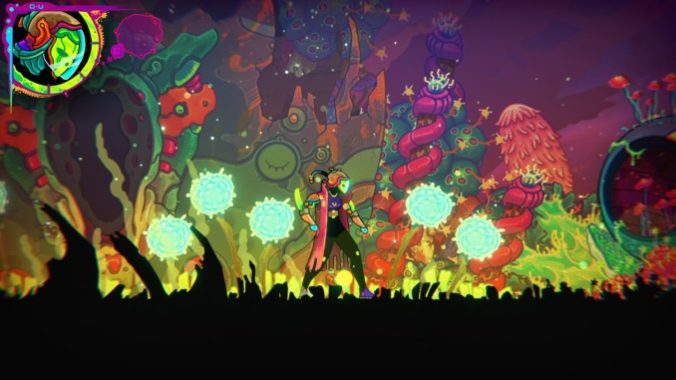
Playing Ultros is gaming in a cloud of color and confusion, a perpetually exciting state of being that evokes the earliest days of videogames while still feeling ahead of its time. Between your constantly shifting relationship with your surroundings, the cryptic goals and hallucinatory interactions, the structure and action of Ultros is as psychedelic as its music and art. And that’s genuinely shocking, as few games are as fiercely devoted to the psychedelic aesthetic as this one. The bright, brilliant artwork by El Huervo channels the twisty chaos of comics legend Brendan McCarthy (who might be better known today as the co-writer and designer of Mad Max: Fury Road), uniting the abstract and the visceral (literally—guts are an omnipresent symbol throughout Ultros) to create an art style unlike any other in games. Meanwhile Ratvader’s original score captures the yawning, dramatic stillness of Popol Vuh, the ambient German rock group who soundtracked several Herzog films. El Huervo’s art and Ratvader’s music are the most obvious psychedelic signifiers in Ultros, but the game itself lives up to their mind-altering ambitions. It’s one of the best games of 2024.—Garrett Martin
5. Thank Goodness You’re Here!

Thank Goodness You’re Here, a surreal puzzle-platformer where comedy takes precedence over everything else, is a game like none other. Imagine if peak Monty Python somehow made an Adult Swim show in the 2000s, except it was a game and not a show, and featured Matt Berry giving another impeccable Matt Berry performance. The “puzzles” are less about challenging you and more just a framework for bizarre little comedy sketches, pretty much all of which are absolutely hilarious. And it smartly ends well before it starts to wear out its welcome, after only two or three hours. It’s basically a perfect game if you share its sense of humor, and if you don’t share its sense of humor, you’re probably a bit of a bore. (Sorry.) It’s one of the most purely enjoyable games I’ve ever played, and I’m thinking it will be as fun to revisit again and again as the great comedies it echoes; it’s absolutely one of the best games of the 2020s so far.—Garrett Martin
4. Metaphor: ReFantazio
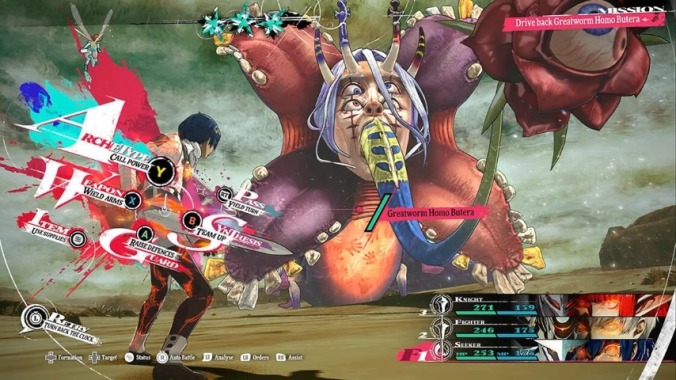
Metaphor: ReFantazio is a great RPG, and an excellent wake up call. The message within it doesn’t feel tacked on. The developers aren’t giving themselves a pat on the back with a not so subtle wish for the story they crafted to be the fantasy that inspires the player without the required foundation. Different structural framings (“use your time wisely and strive to be the best version of yourself”) make a difference. When some people still consider games like Final Fantasy VII to be apolitical in 2024, perhaps the bluntness is justified.
As Metaphor: ReFantazio constantly reminds us, both micro and macro problems are intertwined. What’s the perspective of somebody looking for an abortion in a red state, a family separated by the border, a kid in Gaza? The examples are everywhere, and they’re visibly blunt, too. They’re there while we scroll down on the timeline or in three-second-long attention span cycles while we swipe reels. If only more people made the effort to see things through somebody else’s eyes, perhaps we could regain some semblance of hope that change might stop being a fantasy.—Diego Nicolás Argüello
3. Balatro
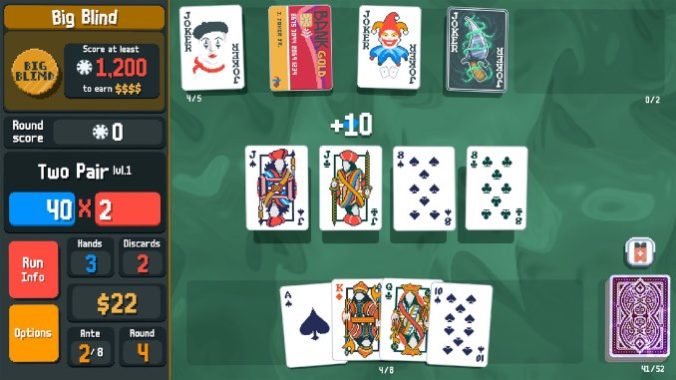
As someone who would rather play virtually any board game than a hand of poker, I was pleasantly surprised by Balatro, a roguelike deckbuilder that transforms this card game into something else entirely. Some elements are what you’d expect; you begin with a standard 52-card deck and score by putting together traditional poker hands like pairs, flushes, and straights. However, where things get interesting is that over the course of a run, you can augment your deck by replacing certain cards with others, upgrading them, collecting passive upgrades that amplify your score, and more. Instead of playing against opponents like in Texas Hold ‘Em, your goal is to build hands that score enough chips to get you through an increasingly expensive series of antes. Like any successful deckbuilding game, decision-making matters in both assembling your deck and playing it. Instead of just going by traditional poker hand strength, points are calculated by multiplying the base amount of chips your hand is worth (chip count corresponds to the card rank, i.e., 9, 10, J, Q, etc.), with the particular multiplier associated with that hand (for instance, a two pair has a x2 multiplier while a three of a kind has a x3 multiplier). Where things get busted is that you can upgrade the multipliers associated with specific hands or cards, and passive abilities add to your multiplier, which can eventually dramatically boost the number of chips you earn. You can gear your deck around certain hands, suits, or passive abilities to increase the odds of hitting big. Outside of the deckbuilding, you’re given a wide array of options and information that makes it feel tactically deep. The game counts cards to let you know the odds, has the option to discard and redraw, allows you to change the order that passive abilities activate, and has consumable items. Good deckbuilders feel fair and like they offer meaningful decisions while constructing and playing your deck. Balatro does all that while also letting you blast apart the rules of poker.—Elijah Gonzalez
2. 1000xRESIST
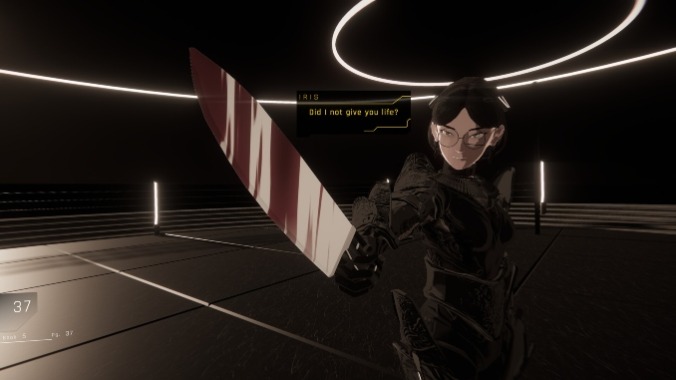
1000xRESIST is many things, but it’s not a game that holds back any gut punches. It refuses to fit into any one box. It’s a walking simulator for a few hours before switching to a side-scroller. The third-person perspective suddenly shifts to a top-down view. It’s a visual novel but also you’re lunging between different nodes on a wide map. It’s a time puzzler and, at times, survival horror. It’s wholeheartedly committed to furiously surprising you again and again and again, and it undoubtedly excels in this mission from beginning to end. It’s the kind of game that can leave you feeling transformed. Few are the games as bold and brave and brilliant as this one; throughout its 15 hours, there’s a palpable eagerness to take the risks that many other teams would shy away from, especially considering this is Sunset Visitor’s debut game. 1000xRESIST is a dazzling testament to the stories this medium has yet to tell; an exemplification of the best that small yet ambitious teams can create; and a gateway to a future in which more videogame narratives have the courage and soul to tackle the ideas that it executes with equal precision and grace. It’s simply triumphant in everything it sets out to do.—Natalie Flores
1. UFO 50
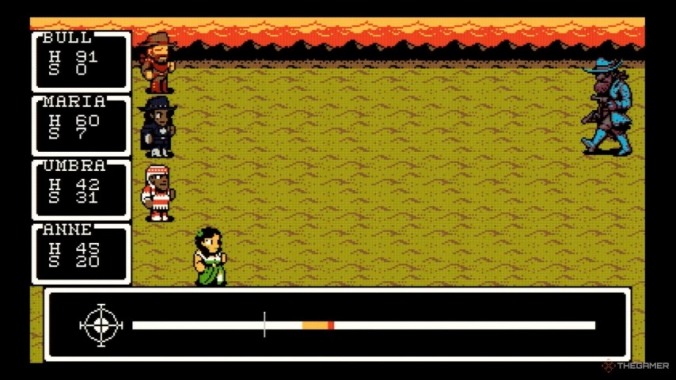
If the concepts for the 50 games in the fictional ’80s compilation UFO 50 sound inspired, well, that’s one of the things that makes it so great—probably too great to be a genuinely realistic fake ‘80s collection. There’s no laziness here, no hack jobs or quick cash-ins; every game has a cool or quirky angle to it, both narratively and mechanically, that puts them more in line with the kind of smart, retro-style independent games from the 2000s and 2010s that UFO 50’s designers are known for than the often limited and uninspired fare that even the best studios cranked out in the ‘80s. It took Mossmouth almost a decade to make UFO 50, which was originally aiming for a 2018 release; that roughly matches the amount of fictional time covered by the game, but I can’t think of any real studio or group of designers in the ‘80s who created a body of work as varied, thoughtful, substantial, and consistently interesting as UFO 50. Designer Derek Yu and crew don’t just evoke the most seminal decade for videogames here; they one-up it at almost every turn.—Garrett Martin
Follow Paste Games on BlueSky.